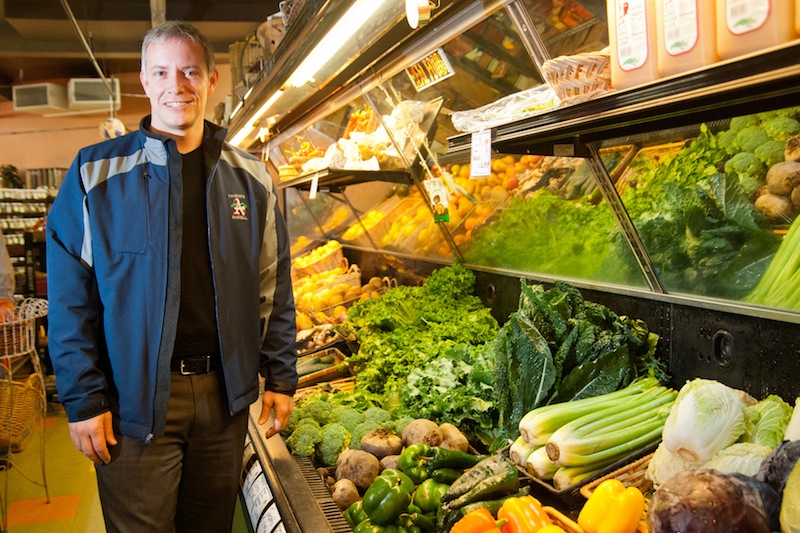Asheville City Council is thinking about your stomach — and stomachs all over town, in fact.
On Jan. 22, Council members voted 6-0 to adopt the Food Action Plan, drafted by the Asheville-Buncombe Food Policy Council. (Mayor Terry Bellamy was absent.)
The plan doesn’t cost anything; rather, it encourages the city to commit to addressing food-related issues. “Anything they bring forward is done in the light of this standing policy,” says Gordon Smith, a member of both Council and the FPC.
Fellow Council member Marc Hunt praised the plan and credited Smith’s leadership for helping to bring it to fruition. “I appreciate how different ones of us pick up an issue and focus on it. This has inspired me to pay attention” to food issues, he said.
FPC member Susan Garrett told Council that the plan was the first step toward “a vision of local abundance,” a city filled with local food at all levels, and “extensive edible landscaping.”
The plan will shape future city initiatives by promoting nutrition and access to food for all residents, Smith explains, noting that it now becomes part of the Sustainability Management Plan, adopted by Council in 2009.
That plan deals with a broad range of issues that can affect food policy and community health, such as emissions and transportation. The Food Action Plan expands the scope of the sustainability plan. For example, it steers the city toward looking at curbside composting along with easing restrictions on local food production and farmer’s markets, among other measures.
“When community development is looking at where to place housing, they’re also going to be considering, ‘Where are the food deserts? Can this housing include a market? Can it include a garden?’” says Smith.
A food desert is an area in which fresh produce and nutritious food are difficult to access, he explains, noting that the problem is especially challenging for people who don’t own a car. In food deserts, people often rely on convenience stores, fast food and delivery items.
The plan also addresses food security: “All citizens should have access to healthy, nutritious food and … our community should be able to sustain its nutritional needs year-round,” it states.
FPC members hope that in the next three to six months, the city will get information about access to healthy food and the resources required to follow up on plan proposals. With the overall goals in mind, staff and FPC members will work together to inventory of Asheville’s food-related resources. They’ll also examine Buncombe County’s emergency preparedness and consider how long local food supplies will last in the event of a disruption in national food distribution.
In the future, the city may allocate funds from the Community Development Block Grants for food-related projects. The plan calls on the city and the county to “designate funding/staff/CDBG monies to support a ‘Resilient Neighborhoods’ program, to assist neighbors in developing awareness of food security and planning for food shortages, including planting gardens.”
Emily Patrick can be reached at food@mountainx.com. David Forbes can be reached at dforbes@mountainx.com.



Before you comment
The comments section is here to provide a platform for civil dialogue on the issues we face together as a local community. Xpress is committed to offering this platform for all voices, but when the tone of the discussion gets nasty or strays off topic, we believe many people choose not to participate. Xpress editors are determined to moderate comments to ensure a constructive interchange is maintained. All comments judged not to be in keeping with the spirit of civil discourse will be removed and repeat violators will be banned. See here for our terms of service. Thank you for being part of this effort to promote respectful discussion.